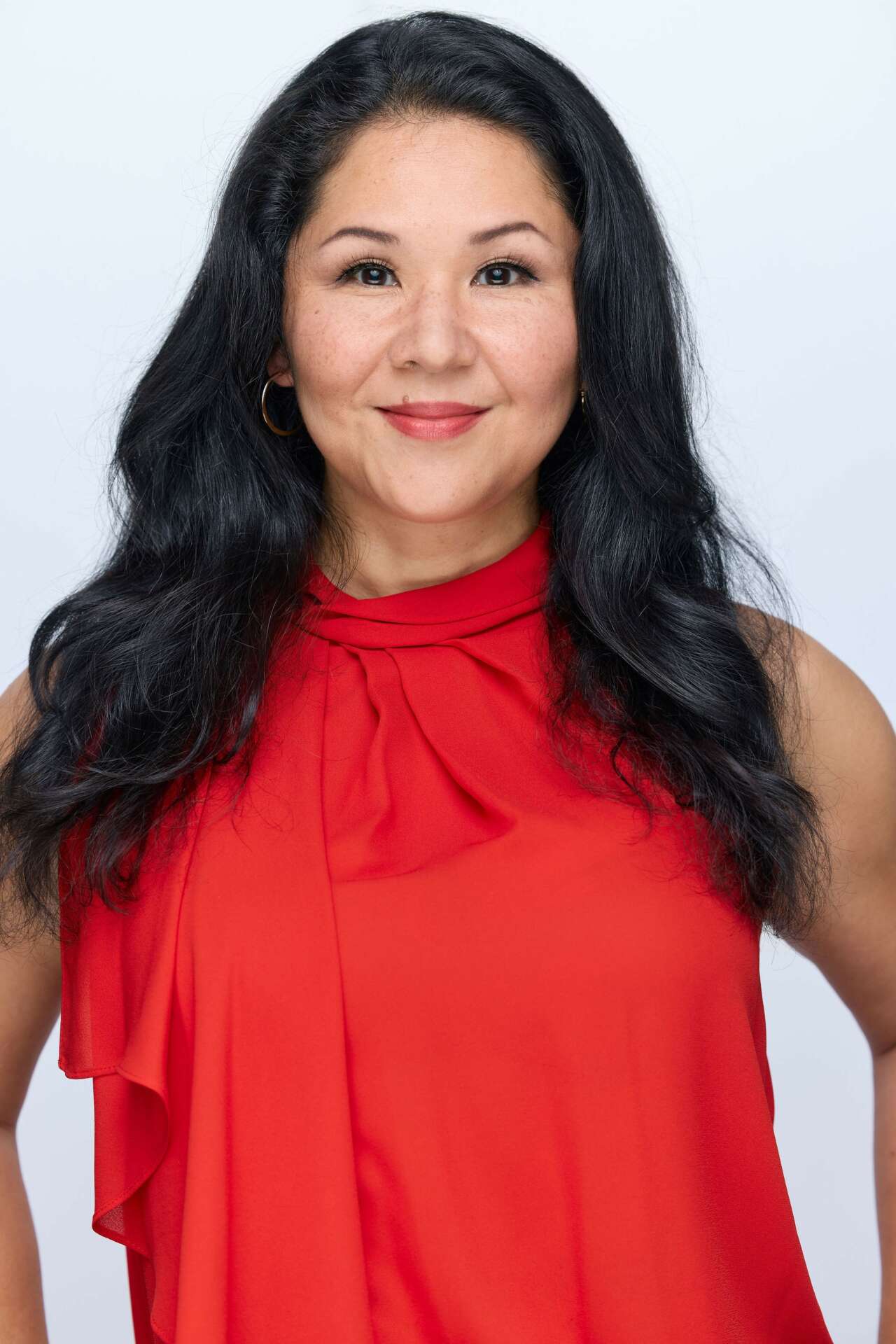We’re excited to introduce you to the always interesting and insightful Arisa Kusumi Sullivan. We hope you’ll enjoy our conversation with Arisa below.
Arisa, appreciate you joining us today. Earning a full time living from one’s creative career can be incredibly difficult. Have you been able to do so and if so, can you share some of the key parts of your journey and any important advice or lessons that might help creatives who haven’t been able to yet?
I began my career as a performer. Making a full-time living as a performer in the US is very difficult, especially for anyone just starting out. I was fortunate to obtain my first job as an opera singer in Germany, which is a unique haven for performers, because arts organizations receive subsidies from the government and can therefore offer a living wage with benefits to the full-time performers they hire.
When I made the choice to return back to the United States to continue my arts career, I knew that the stability and financial security I knew in Germany would no longer be guaranteed in my US career. It might be hard for some to understand why I would walk away from such an “ideal” circumstance. The answer is, there is a time and a place for everything. When I was in my twenties, having a stable job and being in one place were not my priorities. The artist in me needed to grow, to travel, and nourish my creativity with new experiences and learning from new mentors. Being stuck in one place left me feeling stagnant and uninspired. For those with a true artistic soul, this can feel deflating and unbearable..
My time as an artist in the US has not been easy, but it has definitely taken me on a colorful and enriching journey. After performing freelance as a concert and opera singer both in the US and internationally, I found that the times when I was performing and receiving housing and wages, I was living the dream. However, there would be drought periods when I would not have jobs. At those times, I discovered that using my skills to find other jobs helped to pay the bills. I started a voice studio and began teaching private voice. In addition, when times got really rough, I also took jobs teaching English and German, as well as training as a cross-cultural consultant with a global leadership. corporation. I found that the demands of working full-time in the corporate world were too much and squelched my ability to continue to pursue my artistic path and balance the demands of a family life.
I found a good balance with raising my family, performing part time, teaching as an adjunct voice professor at a local college, and supplementing my income further with private voice lessons at my home studio. However, as my kids began to grow older, I found myself again needing more outlets for my creativity. This is when I decided to take a dream that i had been toying with in my mind for 15 years and go forward with founding the Howey Mansion Music Series. I had to manage my time and leave my adjunct faculty position to have the freedom of teaching voice from home while I completed a Certificate in Nonprofit Management from the Crummer Graduate School of Business and simultaneously founding the music series from the ground up.
Founding a nonprofit music series and growing the organization to the point where I can earn a full-time living has been a LOT more difficult than I ever imagined. It’s been incredibly satisfying to see the idea come to fruition and see how much the community appreciates it. However, I have come to the conclusion that this particular series has yet a far road to travel before it is able to support a full-time paying Executive and Artistic Director position because the mansion in which the series is housed is too busy with bookings for weddings etc. to house significantly more music concerts. Also, I don’t think I would want for this to be my full time job, because as an artist, I have come to understand that I love the variety in my artistic pursuits. I now supplement this wonderful accomplishment and part-time position with new adventures. I still adore my job as a voice teacher – teaching the up and coming young talent, adjudicating competitions, and now serving as Florida Governor for the National Association for Teachers of Singing (NATS.org), I still perform from time to time, but as I get older and sing less, I have opened up new doors as a model and commercial actor by connecting with Professionally Pretty Talent Agency. I absolutely love trying out new outlets for performing, and the new title of Multi-hyphenate Arts Leader is suiting me well!
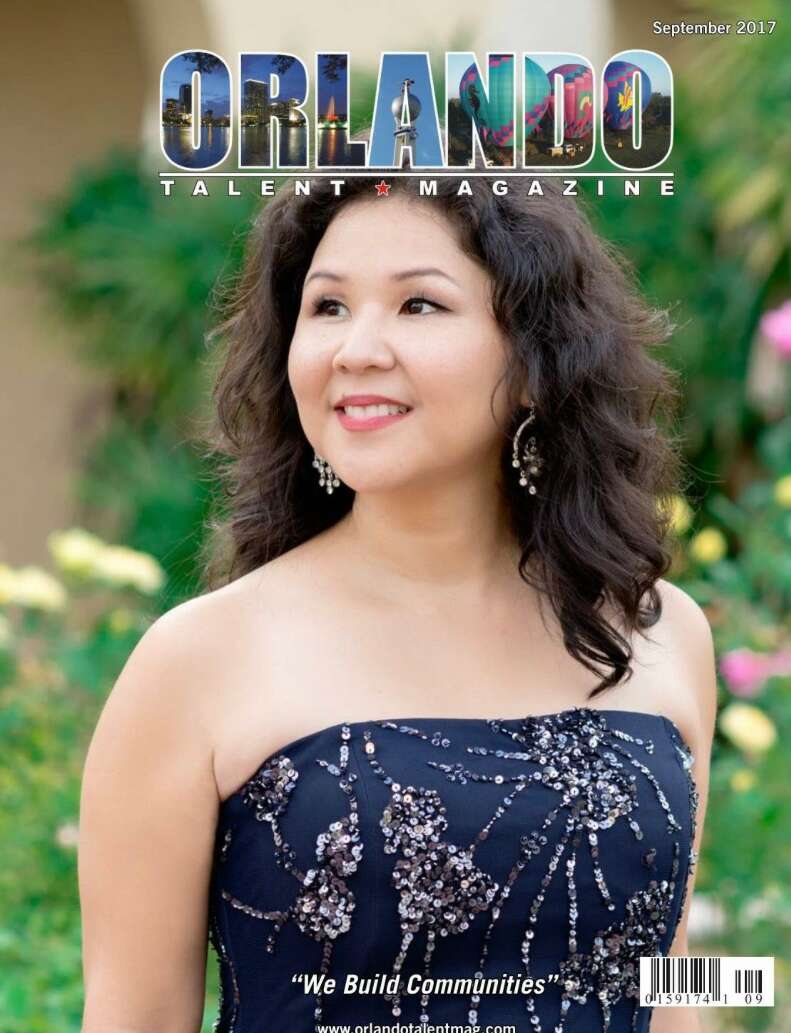
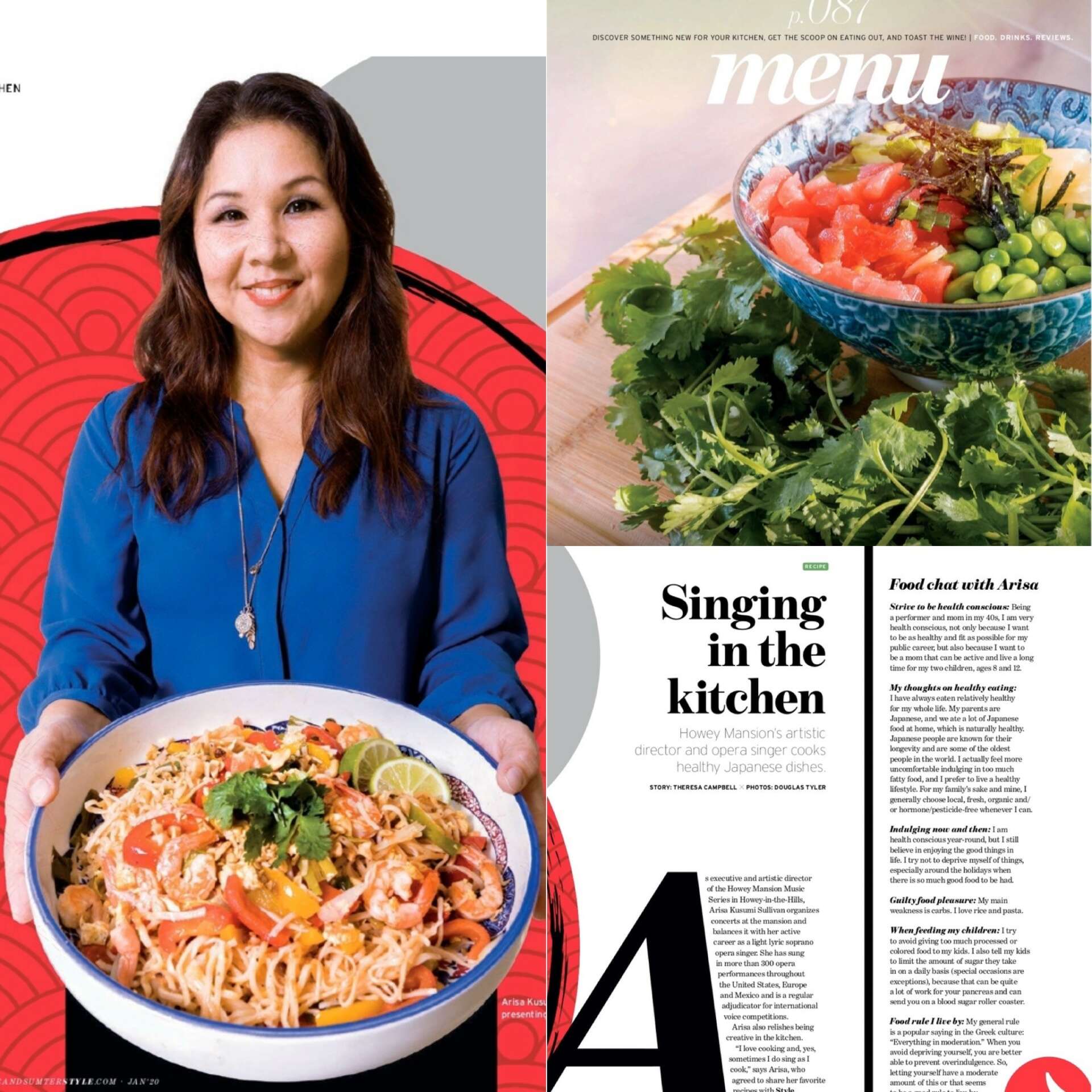
Arisa, love having you share your insights with us. Before we ask you more questions, maybe you can take a moment to introduce yourself to our readers who might have missed our earlier conversations?
I was born in Kinston, North Carolina to first generation Japanese parents. My family is very science-oriented, but some of my first musical memories are of the sound of my mother’s beautiful and natural singing voice and of my father listening to the jazz and classical greats, such as Nat King Cole, Louis Armstrong, Vladimir Horowitz, and Wagner and Tchaikovsky orchestral works. Despite being an unwilling attendee, my parents exposed me to many of the great live concerts that passed through our area.
My first musical identity was as a singer. I felt a strong calling to audition for a school production of West Side Story. It was from this experience being cast as “Maria” that kicked off my musical journey. From middle school into my adulthood, I had the good fortune to come across a series of remarkable mentors who prepared me for each stone along my stepping path. After winning first place in NC and the Mid-Atlantic region with the NATS (nats.org) competition, I studied voice performance at the Eastman School of Music with Carol Webber and went on to learn from such amazing musicians as Dalton Baldwin, Benita Valente, Martin Issep, Ken Noda, Thomas Quasthoff, Margo Garrett, and Marni Nixon just to name a few. Teachers and mentors are one of the most important, if not the most important ingredient to an artist’s success. It is why I have dedicated much of my life to paying it forward and mentoring other young artists.
My performing career as a classical singer has been a robust one. I worked for 6 years in fest and guest contracts at European opera houses and lieder venues, such as Verbier Festival, Villecroze Festival, etc., before returning to the US to perform with Ravinia Festival Steans Institute, San Francisco Opera Center, Marlboro Music Festival, and in concerts and opera houses throughout North America. It has been my greatest joy to stand on stage and evoke transformative feelings in my audience members by painting emotions with phrasing, diction, and tone in amazing works with profound lyrics. This is the privilege that performers are blessed with. Some people go straight from school to teaching, but I had 10 years of experience as a full-time performer before I even began teaching, so I bring a lot real-life skills to my teaching. I have traveled the world and worked with the best of the best. I have enjoyed the highs of performing on international stages, and and I have suffered when I have encountered terrible situations and people. It all flowed more smoothly when the formula was simple. It was just me pursuing my dreams. However, things got more complicated when I met my husband and had to factor in other people to the equation, like children. This is when many artists quit their pursuits and look for a more stable job and life. Not only is it challenging, but it’s a pivotal point in one’s life. It is a painful time of sacrificing one’s own wishes to care for others who need you. It’s important to remember that despite the challenges, it’s also a very beautiful thing to engage in a more complex life and enrich your sphere with love and human relationships. These are the emotions that are contained in the great compositions and poetry of what we sing about! With firsthand knowledge of these deep human experiences, one’s artistry performing these pieces takes on a deeper dimension.
So I went from being Arisa, the solo artist, to becoming Arisa, the mother, wife, and musician, quite clumsily, I might add. It’s all been made even more complex with having children who have neurodiversities and caring for my aging mother. But needing to be closer to home to care for my family has actually led me to explore new territories that I probably never would have otherwise. I have really enjoyed learning the art of connecting and communicating with students by finding my own style of teaching to pass on what I have learned about good vocalism and from overcoming my own issues successfully. Teaching is an incredibly fulfilling way to connect with other humans and make a big impact in their lives. For those making the transition from performing to teaching, I would tell them that teaching is different but just as meaningful a way of connecting deeply with people.
The connection with other human beings is what motivates me most powerfully as an artist. I found it easiest to create this connection in an intimate setting such as in chamber concerts or lieder recitals. Having spent the majority of my career working on these genres and enjoying such intimate musical settings is what led me to envision founding a series of my own where the main focus could be on creating that experience for others. This is how the Howey Mansion Music Series was born. With my spending more time in Florida, and with the renovation of the historic 1920s mansion, including an acoustically magnificent Great Hall, it was a coming together of the right place at the right time.
While teaching young people over many years, I began to see a declining interest in the foundational technique that musicians gain from classical and jazz music. As I mentioned earlier, I was exposed to amazing classical and jazz music from an early age. I later went on to learn and study about it. It was after learning a little bit more about the history and background of this type of music that got me hooked. I saw an opportunity to give this kind of exposure and education to the people in Florida and beyond by founding the Howey Mansion Music Series. All of our concerts enhanced with educational and fun facts presented by the musicians. That way, audience members learn something about these musical treasures and can go out and invite other friends to attend as well. This is how we ensure that these art forms don’t die out.
I am proudest of the fact that I took a pipe dream and turned it into a successful and burgeoning nonprofit organization going into its fifth season. I started with no knowledge of how to run a nonprofit organization, but with the help of Edyth Bush Foundation, I was able to receive a scholarship for a certificate program in nonprofit management from the Edyth Bush Institute at the Crummer Graduate School of Business. I have so much support from local arts organizations as United Arts of Central Florida and local resources. I have connected with various great leaders in my community and gotten to know many more people in the community to form a strong board of directors, volunteer group, and essentially run a “small business.“ I continue to grow this organization by growing my network through my recent foray into acting and modeling, as well as my continued work in teaching and arts leadership. I work with amazing people at the Vienna Summer Music Festival, I am starting a new position as Florida Governor of the Southeast Region of NATS (where I made my start), and I make every effort to mentor and connect with young artists to pay it forward whenever possible.
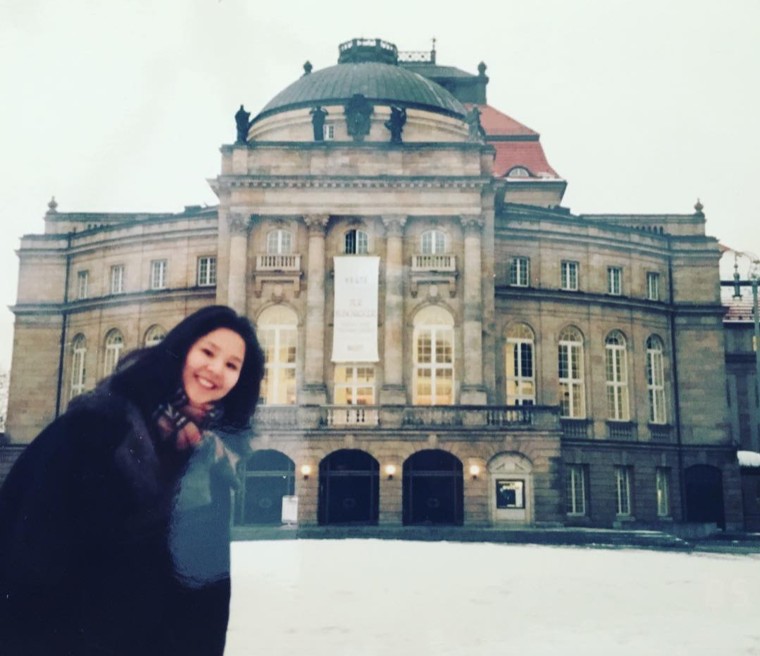
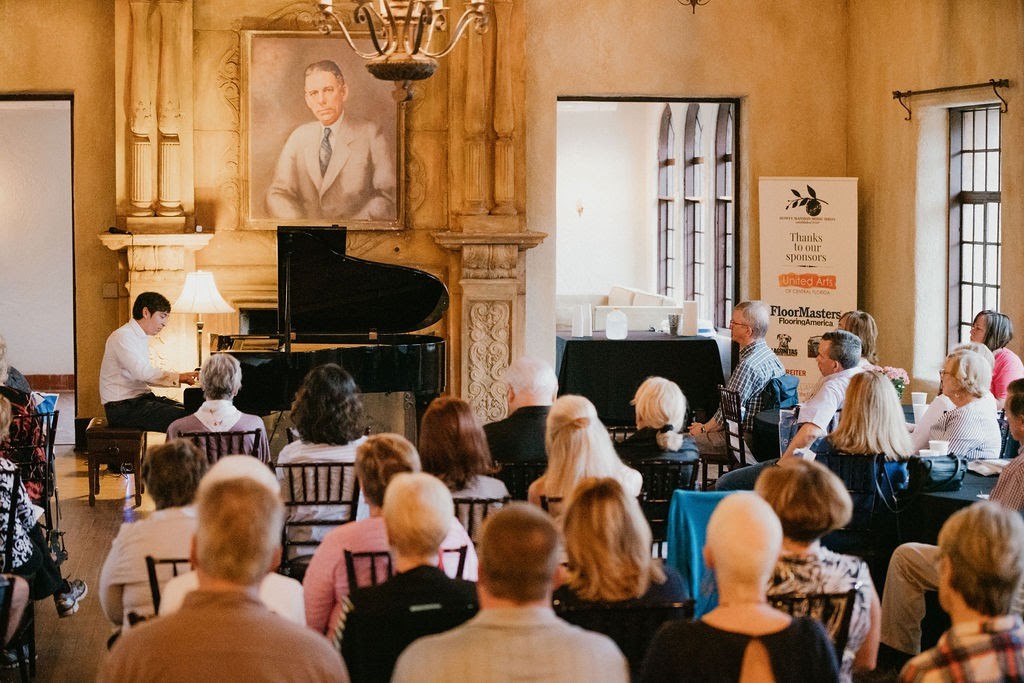

Are there any books, videos or other content that you feel have meaningfully impacted your thinking?
Growing up in the southern United States as an Asian American woman in the 80s, there weren’t a whole lot of examples of powerful Asian women in leadership positions. I can count them on one hand, and not even use up all my fingers! Connie Chung was perhaps the first and most visible Asian American woman I came across, and I remember idolizing her and wishing I could one day be a newscaster like her. In fact, being a leader didn’t even occur to me as a possibility until my forties, and I was even discouraged on multiple occasions from exercising any sense of assertiveness, authority, or influence in my childhood and throughout my career. People would often react angrily or condescendingly to me if I tried to express my opinion or take the lead. I remember being in a French class in fifth grade with 3 boys and myself. The teacher screamed at me and accused me of being disrespectful and having “an attitude.” The worst part of it was, I couldn’t at all recall ever having been that way towards her. At school and work, people would call me “cute,” or the “always smiling Asian girl,” and tell me how they could never imagine me being “bitchy,” or “bossy.” When I did draw boundaries, present an opinion, or try to be taken seriously, they would often be taken aback, laugh, or get angry with me. This is why for most of my life, I learned to navigate my way by staying safely within the boundaries that this society set for me and often unconsciously traveling under the radar. I spent most of my life feeling very frustrated and misunderstood, and I didn’t even realize why.
Two things really changed my life. The first was working as a diversity and inclusion and global leadership consultant for TMC/Berlitz (tmcorp.com). I started as a salesperson, needing money and taking on a full time job by using skills I had attained over the course of my life. As I became more knowledgeable, I started consulting companies and became certified in the Cultural Orientations Approach (COA) and the Inclusive Leadership program created by Dr. Joerg Schmitz, which was rolled out to executives at many of the world’s leading global companies. It is from my work consulting global companies on how to ease the pains of working with different cultures, countries, and leadership styles that I came to understand and develop my own leadership style. In America, there is a certain understanding of what “executive presence” means. Anyone who didn’t have this executive presence usually wasn’t taken seriously as a leader. However, in other parts of the world, such as Asia, executive presence means something completely different and even sometimes opposite of what Americans understand to be the qualities of a leader, e.g. loud or deep voice, assertive mannerisms, “speaking up” and expressing opinions. When I saw examples of leaders in the world who did not have a big booming voice, or behave with bravado and boldness but still managed to produce top numbers and get results, it suddenly gave me permission to believe that I could influence and lead by just being myself, Leadership styles are individual and don’t need to be just one size fits all.
This was incredibly liberating, but getting others to understand my leadership style was not working. I felt sidelined and often overlooked. This is when the second huge influence helped solidify my leadership style. By this time, I was in my forties, I had children, a husband, and had a plethora of experience. However, I still never imagined that i could really do anything big, because no one would take me seriously. This is when I started working with a lot of millennials who have a very different world view on things. Millennials are often criticized for being entitled or too demanding, not showing respect for elders, etc. However, this is where it is important to recognize that for every generation, there is something good that comes from a fresh view of the world. I sat down with my colleague Vincent Connor who was about to embark on founding the Vienna Summer Music Festival (viennasummermusiccom) with his business partner Michael Polo. Vincent asked me to help him get the festival off the ground and really spearhead an art song program in the festival. While the art song portion of the festival did not take off, it was incredible to have a person in a younger generation who wasn’t held up by sexism or racism to believe in me. As a result, I got to experience an amazing summer in Vienna directing an opera world premiere, and I began to actually believe that I could be an arts leader while being 100% authentic to myself.
It is these experiences that helped me to believe in myself enough to found the Howey Mansion Music Series, and my life has been transformed by these experiences and people.
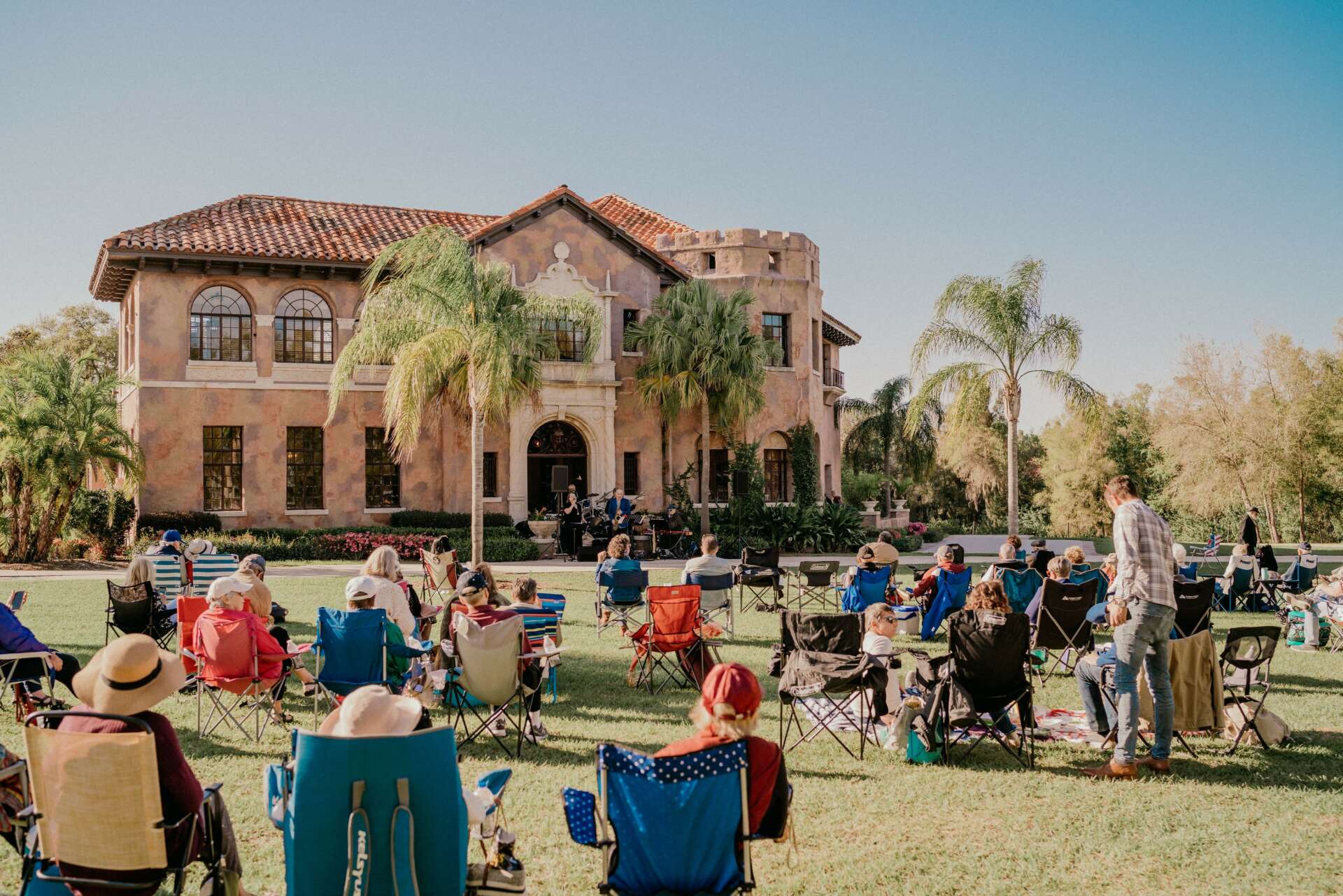
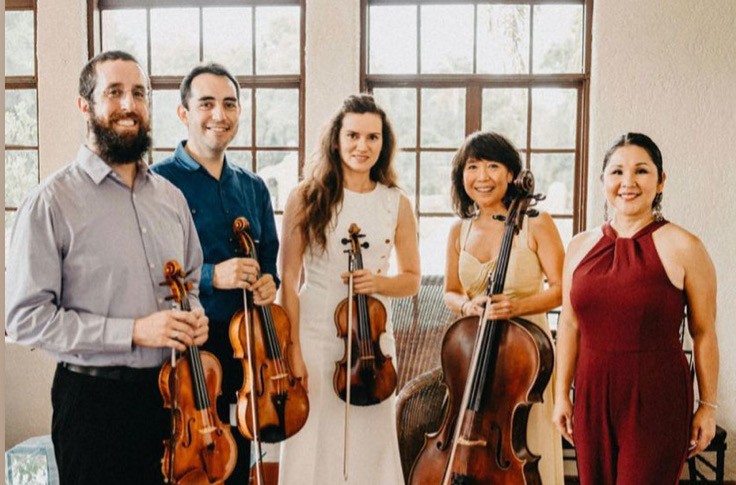
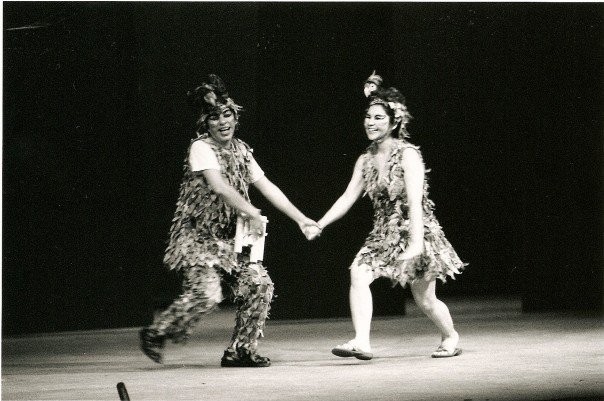
Learning and unlearning are both critical parts of growth – can you share a story of a time when you had to unlearn a lesson?
One important piece of advice I would like to give those pursuing a creative career is to not expect a linear upward trajectory. Most people and the media like to present career stories in a way that makes you feel like there is a point at which you “make it,” and after that, you are successful. I remember turning 30 and being horribly depressed, because I felt like I hadn’t achieved what I defined as success. That can be different for everyone, but most people think that means a certain financial stability, a certain position to attain, or status at work. These kinds of misguided definitions are what lead people to get depressed and suffer a lot of heartache. The important thing to remember is that there is what society may define as success, and what is actually a successful outcome that makes YOU happy. You will never be happy trying to achieve what other people determine as success. Your success is individual and unique. It might look like a windy, dotted line with no rhyme or reason and no particular direction, and yet, if you want to learn, touch people’s lives, grow, and live life to the fullest, this may be the best path for you. Don’t make yourself miserable feeling like a failure, because you didn’t achieve someone else’s dream. Take charge and define what you need to be happy.
Contact Info:
- Website: Www.howeymusicseries.org
- Instagram: @howeymusicseries
- Facebook: @howeymansionmusicseries
- Linkedin: Www.LinkedIn.com/in/arisasullivan
- Youtube: https://youtube.com/channel/UCRU6iDjWjK_-JJEOAO1ip4Q
- Other: Www.arisakusumi.com Email: [email protected]
Image Credits
Benjamin Jimenez Photography Hughes Fioretti Photography Lake and Sumter Style Magazine Orlando Talent Magazine


